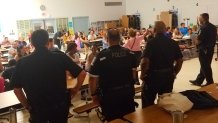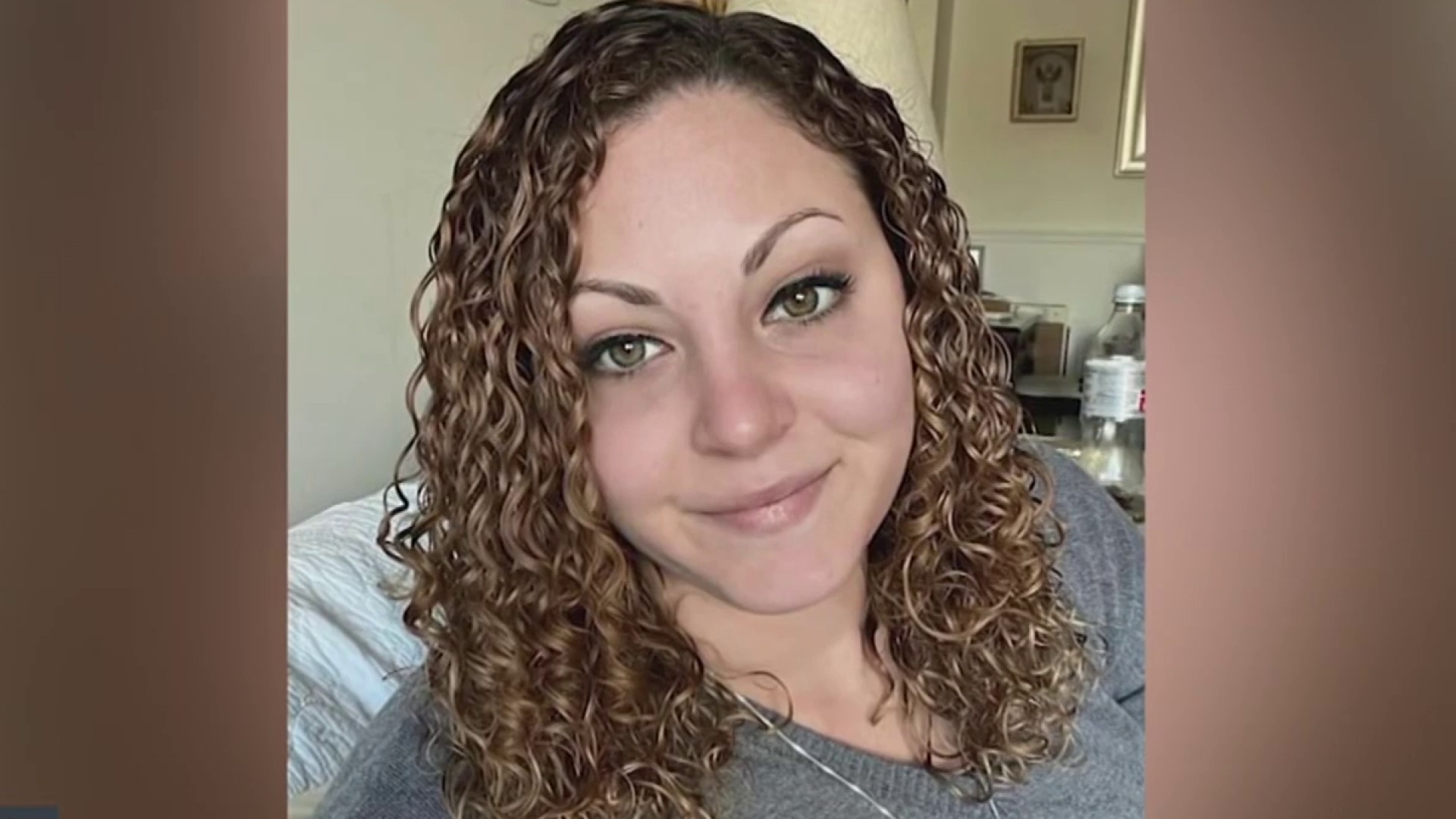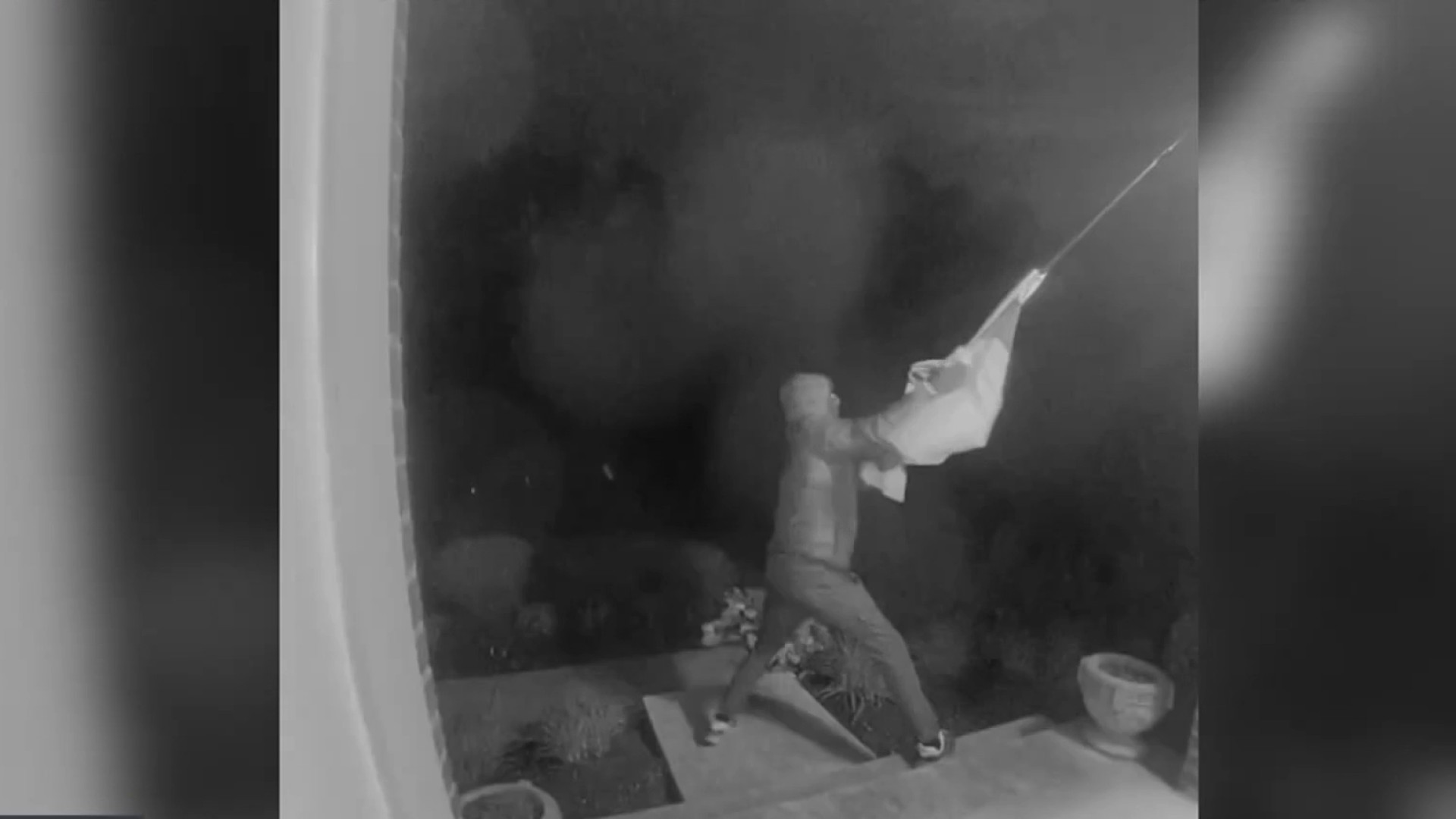A knock at the door in the middle of the night could change the lives of Lola and her family. This wife and mother of two young daughters lives with the thought in the back of her mind that at any moment, she could be arrested and separated from her family.
"We have to be strong for our daughters, put aside our fears. They can’t see that we’re afraid because that affects them," said Lola, who along with her husband, Chepe, asked to be identified only by their nicknames for fear of deportation.d
Lola is one of roughly 11 million people living illegally in the United States. Like many undocumented individuals, Lola and her husband bear the weight of knowing they can lose everything they have worked for in search of their own piece of the American dream; which can be as simple as a job to put food on the table or even a home to keep the family together. This reality has sunk in even further under the new presidential administration.
President Donald J. Trump has long vowed to crack down on illegal immigration. In his first 100 days and under executive order, U.S. Immigration and Custom Enforcement agents arrested nearly 40 percent more people suspected or known to be in the country illegally compared to this time last year, according to a government statement released in May.
Data shows that the number of immigration arrests of people who have not committed a crime in the United States, like Chepe and Lola, has spiked from approximately 4,200 in 2016 to more than 10,800 this year -- more than 150 percent.
In response to the expanded immigration enforcement, Montgomery County Public Schools superintendent Jack R. Smith issued a countywide memo on Feb. 23, 2017, to all principals on how schools would continue to provide a welcoming learning environment to all students, regardless of their legal status.
Building a Bridge: How Montgomery County is Helping
Local
Washington, D.C., Maryland and Virginia local news, events and information
The couple is actively involved in their 9-year-old and 17-year-old daughters’ educations. They help with homework and regularly attend parent-teacher conferences. For the last four years, they have also attended community meetings that the local public schools have hosted for undocumented parents.
The MCPS system provides meeting space for legal informational sessions for undocumented parents of students attending their schools. The sessions are hosted by the local county police department, Catholic Charities of Maryland, and Identity, the non-profit that put the program together.
Police officers also attend these sessions and, with a Spanish speaking interpreter, try to convey why undocumented people shouldn’t be afraid to report crimes or call the police for help.
Commander Dinesh Patil of Gaithersburg’s 6th District explained the difference between them and ICE officers to a group of about 80 undocumented families.
"Look at our uniforms, it doesn’t say the word 'ICE' on it because we are not ICE agents, therefore we can’t deport you… We’re here to help you," said Patil. "Please don’t be afraid to call us, we don’t deport people."

Last month’s meeting was hosted at South Lake Elementary School in Montgomery Village.
Chepe and Lola sat up front taking notes and spoke with Patil during the question and answer session. They said these informational sessions have helped them reexamine police officers in a different light.
"We now have a better understanding of our rights and how to engage with police officers if we were to get stopped," said Lola. "Instead of avoiding them and running in the opposite direction out of fear, we try to smile and remain calm because they say they’re here to help the community."
South Lake Principal Celeste King says the school saw a need to educate their large group of undocumented parents about community policing.
"There’s a mixture of fears. Not only are they scared of the gang members in their neighborhoods, but they feel they can’t call for help because they risk getting deported if they do," King said.
Parents were worried about what they saw in the news or stories they heard from neighbors on how undocumented people were rounded up in communities nearby.
"We’re thrilled to participate by opening our doors and hosting these sessions because we will do anything to ensure our students excel in school, and this is part of our community outreach," said King.
The Catholic Charities of Maryland provides legal guidance for families to know if they are eligible to change their immigration status in the United States. The organization’s lawyers and paralegals assess each family’s case for legalization free of charge and help families prepare contingency plans if parents are found ineligible to become legal residents.
Celia Rivas is one of the paralegals working with Catholic Charities and has given presentations at community workshops for over a decade. Her team helps families ineligible for legalization complete 'Next of Kin' applications in case the parents of young children are arrested and deported.
"I’ve done this work for many, many years but, under the Trump administration, we’ve had to revamp our efforts because we’re seeing a growing fear among the families we provide legal counseling to," said Rivas.
Each state has different laws and regulations for authorizing care of minors if the parents are deported and the child remains in the United States.
"In Maryland, it’s not as easy as getting a notary to seal a letter stating, 'I’ll leave my children with my neighbor in case I get deported,'" said Rivas. It is in fact more complicated. "These parents need to submit a 'Next of Kin' application which can take up to 90 days to be processed, but it’s the only authorization that ensures valid guardianship for children in Maryland who are separated from their parents," she stated.
"I Won't Leave My Children Behind, Again"
Chepe studied to be a computer engineer in El Salvador, but after months of searching for a job and with no money to care for their first child on the way, he decided to leave his growing family behind to cross the United States border illegally in search of greater opportunities.
He hired a coyote – a human smuggler who helps migrants navigate the dangerous journey of crossing the border. His trip took about a month and a half, passing through both Guatemala and Mexico before he finally entered the United States in 2000.
"It was physically and emotionally difficult," Chepe said.
"In Mexico, many saw us as merchandise and we had to pay bribes to get through certain points; but thinking about Lola and our baby gave me strength to keep going," he said, as he fought back tears.
After the 2001 deadly earthquakes in El Salvador, Chepe and more than 150,000 Salvadorans were granted Temporary Protected Status, which allows nationals of certain countries under armed conflict or environmental disasters to live and work legally in the United States.
Chepe became a construction worker and regularly worked six days a week. Meanwhile, Lola had their first child in El Salvador and traveled back and forth to the U.S. on a tourist visa for seven years.
When Lola got pregnant with their second daughter, she had the baby in the United States. She knew it was time to make a decision that would determine the fate of her family. She would either raise her two daughters alone in a gang-infested country or she would risk living undocumented in the United States in order to keep her family together.
Chepe cried at the thought of being separated from his girls because of his own childhood memories. His parents left him in the care of extended family members when they too migrated to the United States.
He vowed not to tear apart his family. "I don’t want my children to go through the pain and suffering of growing up without their parents, like I did. I won’t leave my children behind, again," he stated.
The Scare Felt on November 8, 2016
Chepe and Lola were watching the news the night of the election and saw the country elected a president who promised to get rid of undocumented immigrants. The next day, their youngest daughter came home from school crying.
Her friends with undocumented parents were scared that president-elect Trump would deport their parents and that they would stop going to school. Lola recalls how her then 8-year-old daughter shook with tears in her eyes when she asked who would raise her if both of her parents and sister were sent back to El Salvador, since she was the only family member born in the U.S.
As a parent, Lola said protecting her daughters’ well-being is more important than her and her husband contemplating fear.
"We want them to continue to excel in school, we tell them this is the land of opportunity for anyone to succeed if they try hard enough," Chepe said.
An Uncertain Tomorrow
"Every day we ask ourselves, 'What are we going to do if we get deported to El Salvador?'" Chepe stated as he looked back at his wife.
The couple have built their lives in the United States and said they do not have anything to go back to in El Salvador; neither a home nor a job.
"Our country can’t offer our daughters the educational opportunities or the stability of a safe environment like they have here," Lola said while sitting at the family's dining table in their apartment.
Recently, the family suffered another emotional crisis when Chepe was diagnosed with multiple sclerosis. They’re seeking a second opinion and remain hopeful things will improve.
"We can’t lose faith," Lola said as she reached across the table to grasp her husband’s hand, as he was wiping away tears. "We’re praying and believing that soon our luck will change and that God has a plan for us."
CORRECTION (5:45 p.m., Sept. 6, 2017): An earlier version of this article said MCPS hosts legal informational sessions for undocumented parents of students attending their schools. Police, Identity and Catholic Charities host the sessions while MCPS provides meeting space for them.



